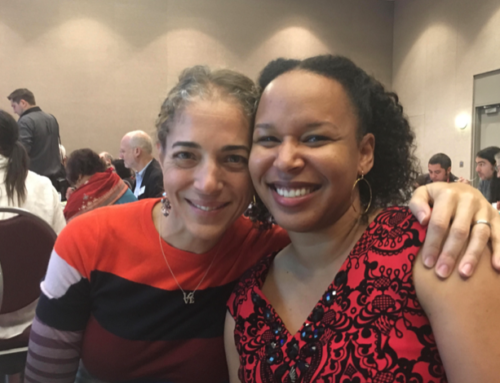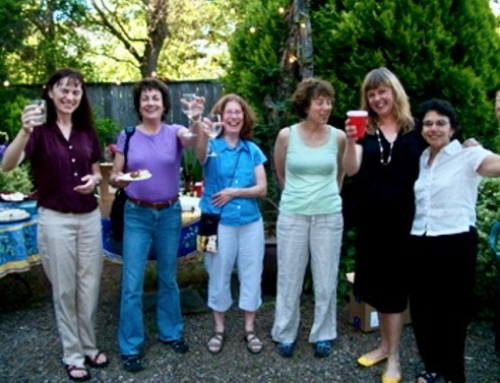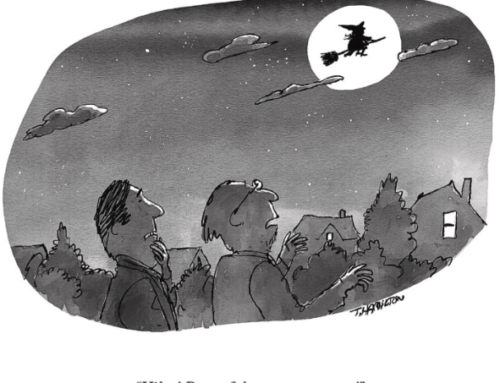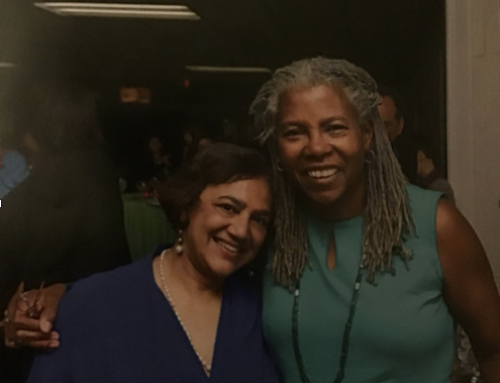Becoming a feminist scholar is never a matter of individual will alone. It is only possible because of the feminist minds and mentors who precede us, who model what feminist scholarship can be and what feminist mentoring looks like. For us, that model is Catherine Lutz. For each of us, Cathy’s turns of mind and way of being have been a stable, inspiring touchstone as we have navigated our own intellectual journeys. There are few moments that don’t benefit from asking ourselves, “What would Cathy think, do, or say?”
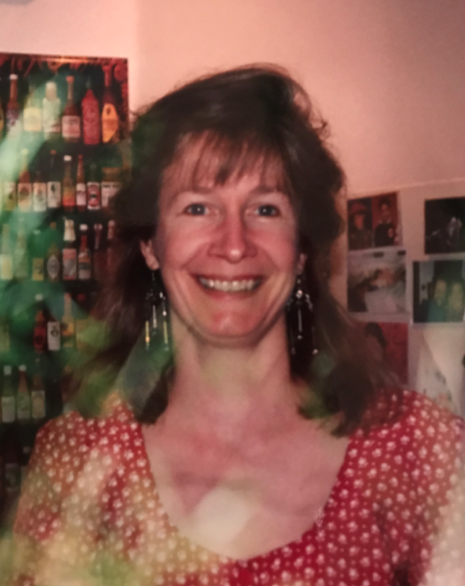
Cathy Lutz, circa 1995
Cathy’s feminist scholarship is as remarkable for its breadth as for its razor-sharp analytical focus. From the ‘unnatural’ everyday emotion-worlds of Pacific Islanders to the masculine infrastructure of the U.S. military industrial complex and the ‘car-system’ as an engine of desire and inequality, it is hard to think of another anthropologist who has tackled a wider range of social problems. Spanning her wide-ranging projects are Cathy’s signature: the capacity to excavate her subject, layer by layer, exposing in exquisite detail an intimate evocation of the forces within which human lives are imagined, felt, and lived. As an ethnographer and theorist she is as fearless and passionate as she is scrupulous and determined. And those qualities define her research and her relationships. They also inform her voice as a teacher, collaborative researcher and public intellectual. We note that these are also, at their best, fundamentally feminist qualities.
For each of us, Cathy’s 1995 essay, “The Gender of Theory,” has been one of those rare and meaty ‘think pieces’ that has fueled our own lines of inquiry. For Carla Freeman, it provided the wedge with which to analyze and debunk the masculinization of globalization such that ethnography is both feminized as local and denied its theoretical merits. For Carla Jones, it remains assigned reading in the first week of every graduate seminar, no matter the subject, as a provocation and an invitation to attend to the relationship between ethnography and theory. Applying incisive critiques of labor and masculinity to the cultural sphere of the academy, Cathy argued that close ethnography is not just the foundation for theorizing, it is the very core of knowledge production. Simultaneously a critique of the ways that theory circulates and immensely theoretical, it is a singular example of Cathy’s exceptional capacity to see and say things that, once said, are so profound as to feel that we must have always known them, yet we hadn’t. Only Cathy could pull those threads together.
Her gifts for making sense of the smallest details of everyday life through the perspective of history, politics, and economics is evident in her earliest work. In her book Unnatural Emotions, she related the tenderness of social bonds among her friends on Ifaluk, conveying their knowledge that to be human is to be embedded in feelings that will potentially bring pain, and yet to also know that the only way to salve that pain is to dive back into more sociality. Though still young herself, Cathy captured that double-bind of life wisdom elegantly and respectfully. Decades before affect theory rediscovered the idea that feelings are intersubjective, Unnatural Emotions quietly made that point.
Her work over the next few decades further demonstrated her gift for linking the intimate to the systemic and structural. Never daunted, she turned her eye to some of the most powerful institutions in the USA, refusing to be told she could not access or analyze them. In Reading National Geographic, she and Jane Collins showed how the magazine became America’s window to the world, translating difference for its readers into soothing national narratives of race, gender, and class that reinforced a story with the modern USA at the center. In her work on the car-system, she traced how compulsory car ownership in the USA is at the heart of overlapping interests: the oil industry, the financial system, and municipal governance, all of which activate the role of cars in producing inequality. In her work on the costs of war, she tenaciously countered rhetoric that institutions (like the military) and historical events (like wars) are beneficial solutions for American social problems. She continues to argue that living in a world in which those assumptions cannot be questioned is expensive in the broadest sense. Considering veteran trauma or high rates of domestic violence within the military alongside the high financial and environmental costs of maintaining a permanent military, she does exactly what the best ethnographers do, connects the dots between the private and the political.
These values are also evident in her mentoring ethic. Mentoring in the academic life course is understandably most focused on the intense years of graduate school. One may think of the teacher or advisor who supported and nourished our development as students or helped us navigate the career trajectory from the classroom to fieldwork or from dissertation to a professional job. But perhaps like parenting, serious mentoring never ends with graduation or the first job. It continues through ongoing care and scholarly engagement across the academic life-course, and also through the lived model of what it means to be generous, kind, principled and passionate. For each of us, Cathy’s work and her way of being have remained that inspiration.
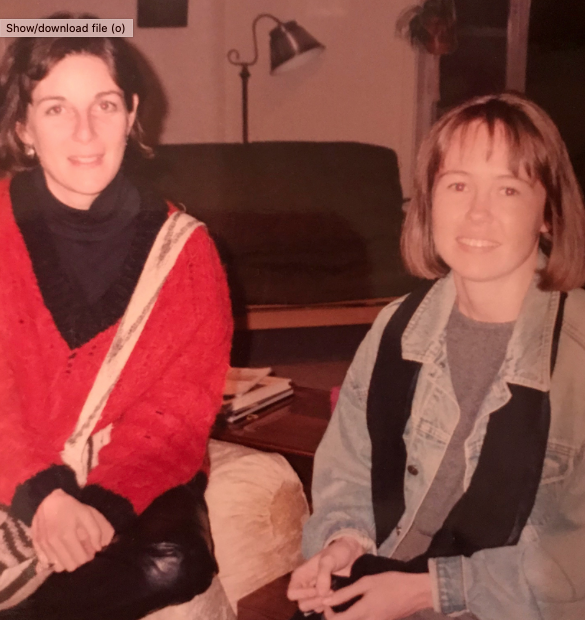
Carla Freeman and Carla Jones at Cathy Lutz’s house, 1995
For Carla Jones, Cathy was a graduate school mentor at the University of North Carolina Chapel Hill. She showed what quiet confidence looked like as a professional academic. I recall thinking within my first year of graduate school that I simply wanted to learn to think like she did. I had the opportunity to do that through classes, and even re-took the core theory seminar when I learned that she would be co-teaching it with Judith Farquahar. I also had the opportunity to learn from her as a research assistant on the archival research for her book Homefront. Working side by side, I read microfilm records from Fayetteville, NC, about boosters lobbying for the formation of Fort Bragg, census records as traces of racial violence and health disparities, none of which were areas I knew much about. Sitting together, I witnessed first-hand her pursuit of new questions, her attunement to patterns I didn’t notice. It was a genuine gift to be able to learn how to think like Cathy.
For Carla Freeman, meeting Cathy came at a more liminal juncture, just as I finished my PhD and arrived at UNC-Chapel Hill as a visiting assistant professor. I have to admit, I was star-struck by Cathy. Reading National Geographic had just come out, and she was, for me, an anthropological rock star. I met Cathy at a time in my life that was designed to be liminal. I was a wet-behind-the-ears PhD on a one-year appointment, ecstatic to be among so many luminaries, and anxious about my precarious career state. Let’s be honest, the life of temporary faculty appointments is often one of stressful invisibility. To my amazement, Cathy treated me as a genuine colleague. She included me in social gatherings and seminars; she read my work. I’m pretty sure Cathy was the one to introduce me to my editor, and I am certain she saw the important kernels of what would become my first book before I did. Cathy also showed me that motherhood and academia could be lovingly combined, and that anthropological work and writing can be even more generative and fun when shared.
Anthropological work and ethnographic ways of knowing have long been figured as solo-adventures–the lone fieldworker immersing themself in another place, another language, spending years away from home, returning to write, again in a solitary tower through a singular voice. Though Cathy certainly embodied the intrepid fieldworker among the Ifaluk, much of her later corpus has been evocatively collaborative. There is a notable feminism in these collaborations, a shared vision, a respectful listening and melding of argument, a boldness combined with modesty. One hears the richly sedimented thought and friendship in each of her projects–Language and the Politics of Emotion with Lila Abu Lughod, Reading National Geographic with Jane Collins, Carjacked with her sister, Ann Lutz Fernandez, Local Democracy Under Siege with her colleagues and graduate students from Chapel Hill. Honoring Cathy together, as her ‘two Carlas,’ feels especially suitable and wonderfully generative. In recalling her mentorship and reflecting on the many ways her work has inspired us, Cathy the feminist scholar-mentor has equally inspired us to make more of such feminist collaboration. Cathy, you model the very essence of feminist anthropologist, teacher, mentor, scholar, activist, and friend. We thank you! And we strive to continue in the ways you have shown us.
References
Lutz, Catherine. 2010. Carjacked: The Culture of the Automobile and its Effect on Our Lives (with Anne Fernandez). New York: Palgrave Macmillan.
—–. 2001. Homefront: A Military City and the American 20th Century. Boston: Beacon Press (with photographs by elin o’Hara slavick).
—–. 1998. Unnatural Emotions: Everyday Sentiments on a Micronesian Atoll and their Challenge to Western Theory. Chicago: University of Chicago Press.
—–. 1995. “The Gender of Theory.” In Ruth Behar and Deborah Gordon, eds., Women Writing Culture/Culture Writing Women. Berkeley: University of California Press.
—–. 1993. Reading National Geographic (with Jane Collins). Chicago: University of Chicago Press.
Cite as: Freeman, Carla and Carla Jones. 2021. “Catherine Lutz: Feminist Scholar, Feminist Mentor.” In “Genealogies of the Feminist Present: Lineages and Connections in Feminist Anthropology,” edited by Lynn Bolles and Mary H. Moran, American Ethnologist website, 24 May 2021, https://americanethnologist.org/features/collections/legacies-and-genealogies-in-feminist-anthropology/catherine-lutz-feminist-scholar-feminist-mentor
Carla Freeman is the Goodrich C. White Professor of Women’s, Gender, and Sexuality Studies and Executive Associate Dean of Emory College of Arts and Sciences. She was President of the Association for Feminist Anthropology from 2015-17.
Carla Jones is Associate Professor of Anthropology at the University of Colorado Boulder. She was President of the Association for Feminist Anthropology from 2017-19.
